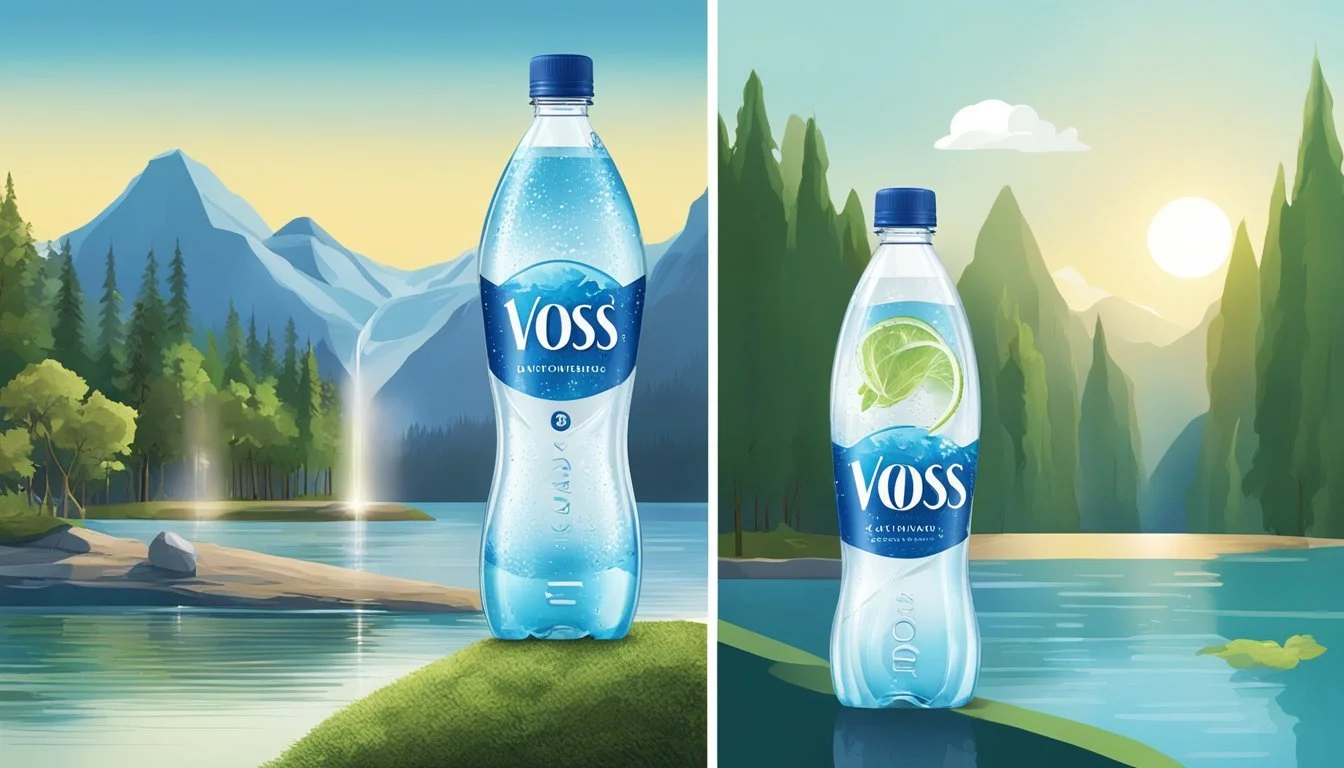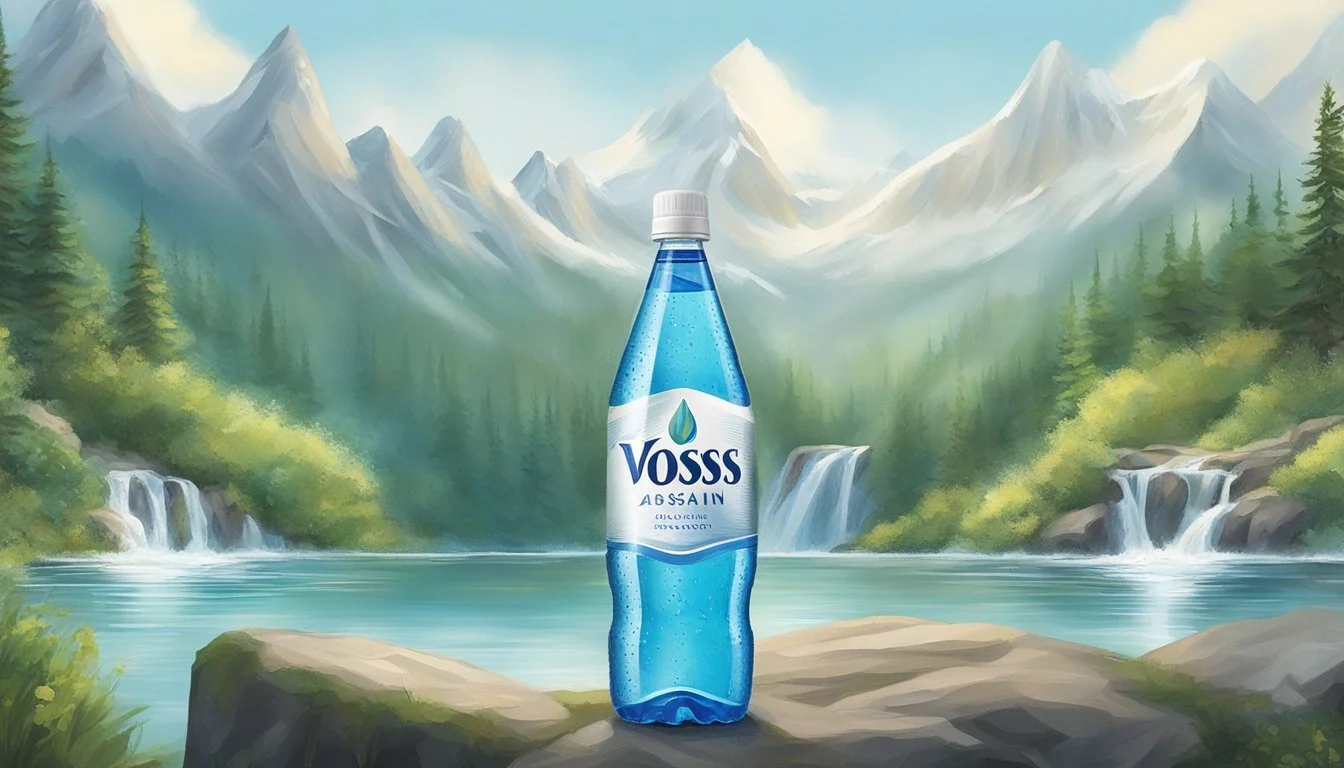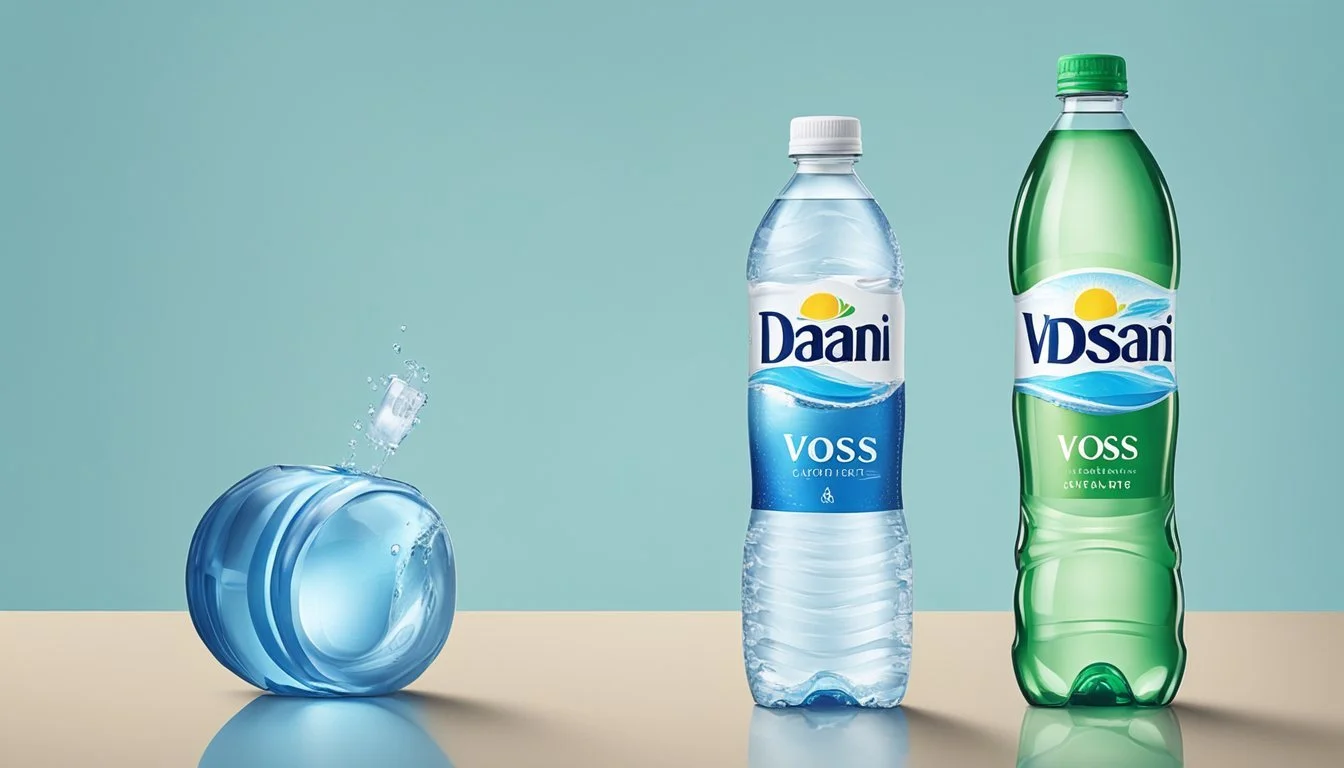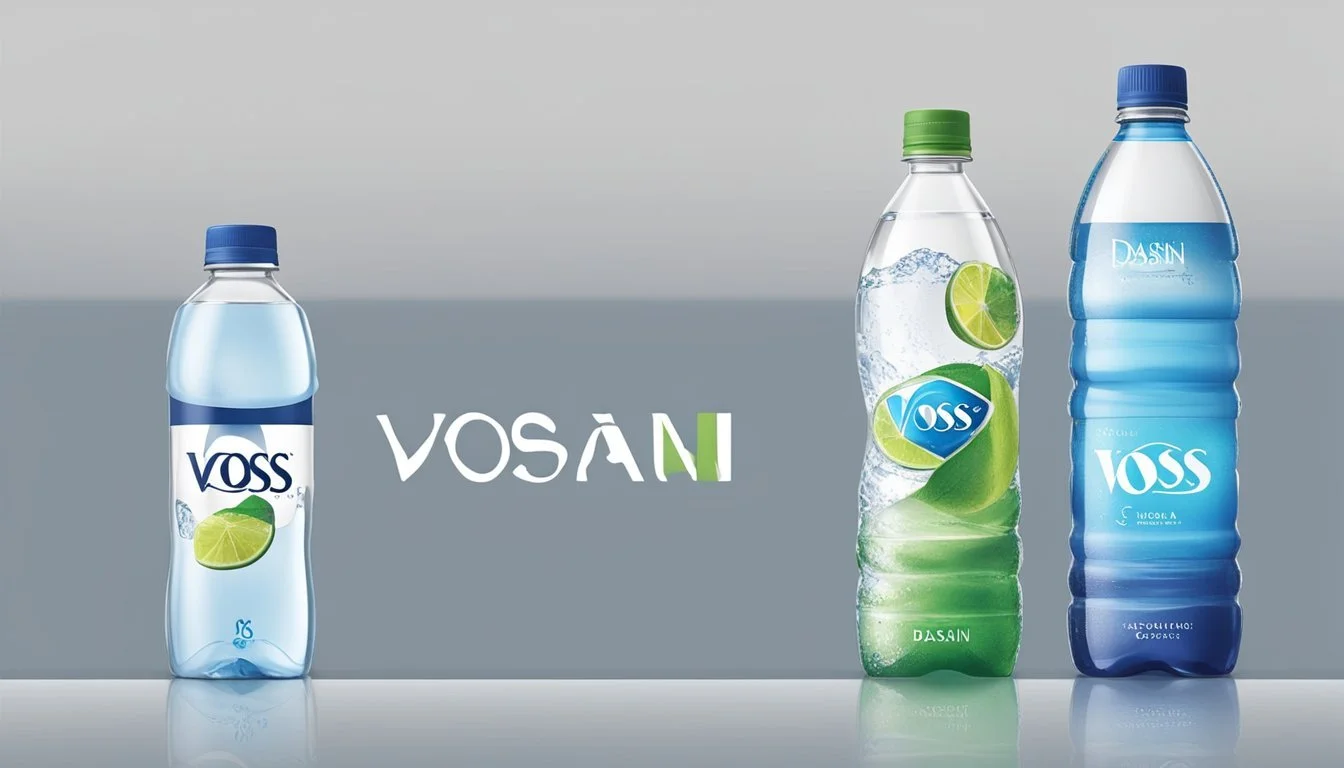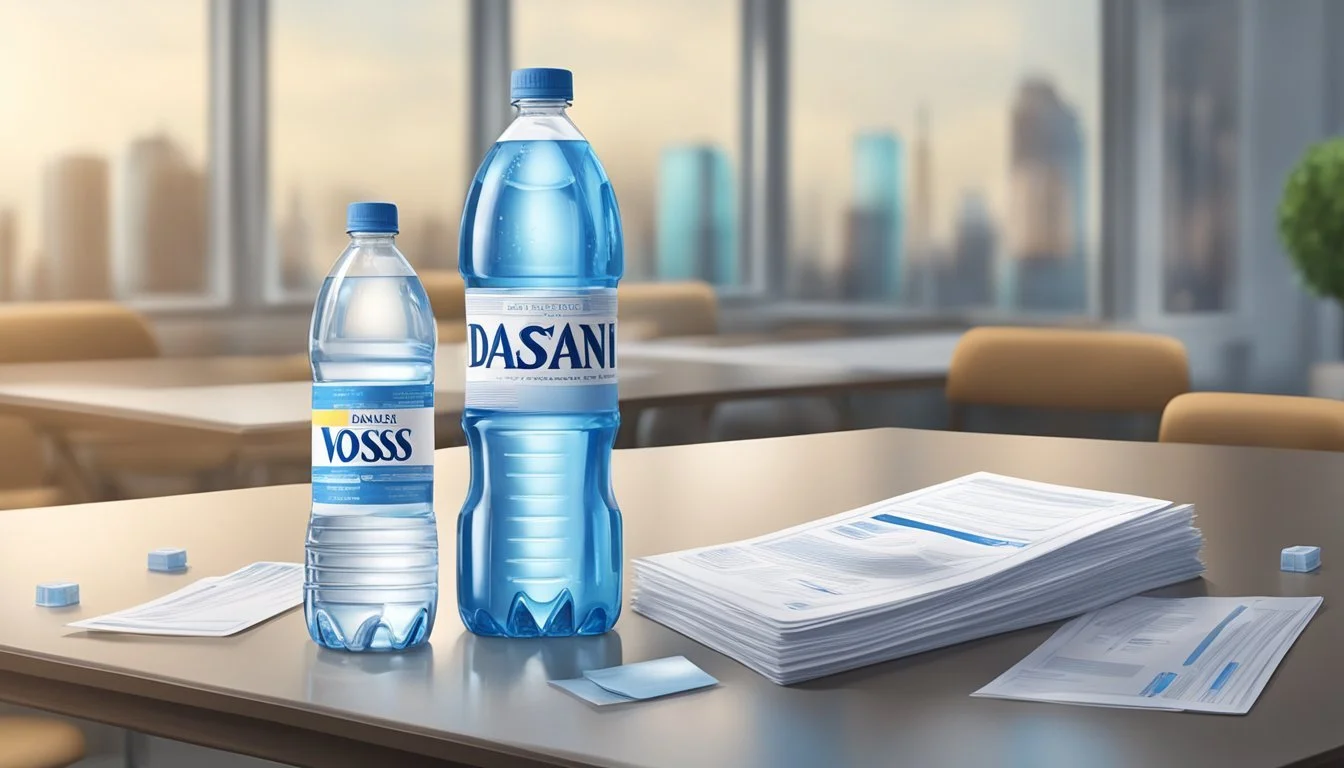Dasani vs. Voss
An Unbiased Comparison of Bottled Water Brands
In the world of bottled water, there are myriad brands to choose from, each with its unique selling points. Dasani and Voss represent two vastly different ends of the spectrum. Dasani, a product of the Coca-Cola Company, has a widespread presence and is known for its affordability and availability. It utilizes purified municipal water and adds a blend of minerals for taste before bottling.
On the other hand, Voss hails from Norway and is often associated with luxury and purity. Marketed as an artesian water, Voss's source is in Iveland, a sparsely populated area in the south of Norway. The brand emphasizes its natural origins and minimalist bottle design, which differentiates it from other products on the market.
Choosing between Dasani and Voss ultimately comes down to personal preference and priorities. Whether it's the value and accessibility of Dasani or the premium branding and taste of Voss, consumers base their choice on factors such as taste, quality, source, and even the environmental impact of the packaging. Each brand has built a loyal following, but their differences highlight the expansive variety that exists within the bottled water industry.
History and Brand Overview
In the competitive bottled water market, Dasani and Voss have carved out distinctive brand identities. Dasani, owned by Coca-Cola, was established to capture a share of the growing demand for bottled water. In contrast, Voss, born in Norway, presents itself as a premium water brand, known for its purity and marketing towards an upscale audience.
Dasani: Coca-Cola's Answer to Bottled Water
Coca-Cola introduced Dasani in 1999 to claim its stake in the bottled water industry, which was rapidly expanding. The brand uses a combination of filtration processes, including reverse osmosis, to purify its water, after which a special blend of minerals is added, giving Dasani its signature taste. Coca-Cola's extensive distribution network has allowed Dasani to become widely available in a variety of sizes, from small bottles to large multi-packs, catering to a diverse range of consumers.
Voss: Luxury Water from Norway
Voss originated in Norway, and it is bottled directly from a natural aquifer in the untouched wilderness of Southern Norway, priding itself on its source's pristine environment. Launched in 2000, the brand quickly became known for its distinctive cylindrical bottle and is often associated with high-end restaurants, hotels, and nightclubs. Voss offers both still and sparkling water varieties, and is positioned in the market as a luxury product, with the brand often highlighting the pureness of its Norwegian origins.
Source and Purity of Water
Choosing between Dasani and Voss bottled water often comes down to understanding their source and purification processes. Dasani is known for its multi-step purification system, while Voss is celebrated for its pristine natural spring sources.
Dasani: Purification Process
Dasani water originates from local sources and undergoes a rigorous purification process. The water is filtered for impurities through reverse osmosis, a method that removes dissolved inorganic solids by pushing water through a semipermeable membrane. Post the reverse osmosis stage, Dasani adds a special blend of minerals for taste, which differentiates it from other purified waters. The brand ensures consistent purity and taste by controlling the entire purification process.
Voss: Natural Spring Sources
Voss water is sourced from the aquifers in the untouched wilderness of Southern Norway, reputed for their protection against pollutants. The water naturally filters through volcanic rock, enriching it with minerals and leading to its unique fresh taste. The brand emphasizes the purity of its product by maintaining minimal human contact, bottling directly at the natural spring source. Voss' bottling process ensures that the water retains the natural characteristics of the spring from which it is drawn, providing consumers with high-quality natural spring water.
Health and Hydration
When evaluating bottled water like Dasani and Voss, it is important to consider their mineral content, pH levels, and electrolytes, as these factors greatly contribute to hydration and overall health.
Mineral Content Comparison
Dasani: This water is purified through reverse osmosis, a process that removes most minerals. However, a select few minerals are added back for taste.
Voss: Originating from Norway, Voss is recognized for its low mineral content, though it is not demineralized to the same extent as water treated with reverse osmosis.
Dasani Voss Calcium Present (added) Naturally low Magnesium Present (added) Naturally low Sodium Present (added) Naturally low
Understanding pH Levels in Bottled Water
Dasani: It’s said to be slightly acidic, with a pH balance that may lean below neutral. Acidic water can affect taste and may not be preferred by those seeking alkaline water for its purported health benefits.
Voss: Typically boasts a neutral pH level, aligning with the belief that neutral or slightly alkaline water can contribute to maintaining a healthy pH balance in the body.
Dasani Voss pH Level < 7 ~7
Electrolytes and Their Role
Dasani: The added minerals also act as electrolytes, which are critical for hydration and repletion of lost nutrients through activities like exercise.
Voss: While lower in mineral content, it still contains electrolytes that help to quench your thirst and replenish the body after dehydration.
Both brands offer electrolytes which are vital for maintaining hydration. They complement water’s primary role of hydration by facilitating cell function and fluid balance within the body.
Taste and Consumer Preferences
The subjective nature of taste in bottled water can sway consumers toward one brand or another. Factors like mineral content can influence flavor profiles and consumer preferences significantly.
Flavor Profile Analysis
When comparing Dasani and Voss, distinct differences in their flavor profiles emerge. Dasani, a product of The Coca-Cola Company, often carries a subtle note of minerals with a potential for a slight metallic tinge. This is attributable to the added minerals, which are intended to enhance the taste. In contrast, Voss, sourced from Norway, prides itself on purity and a clean taste, which may lean towards the neutral end of the flavor spectrum.
Other popular brands such as Fiji and Evian are often included in discussions regarding taste. Fiji is known for its smooth and soft taste, which some suggest has a slightly sweet note due to the silica it contains. Evian, hailing from the French Alps, is characterized by its balanced mineral content, which can impart a refreshing flavor appreciated by many consumers.
As for Nestlé Pure Life, it’s noteworthy that some consumers may rank it average in taste tests. It contains a blend of minerals for taste, yet it doesn’t stand out significantly in either a positive or negative way in regards to flavor.
Consumers often associate Smartwater with a clean, crisp taste due to its distillation process and the addition of electrolytes for taste. While not overly mineral-heavy, its taste is engineered to be distinctly pure and fresh.
A brand's mineral content, therefore, plays a crucial role in the overall taste experience:
Dasani: Mineral additives for enhanced taste; potential for metallic hints.
Voss: Neutral, clean flavor; low mineral profile.
Fiji: Soft, smooth with a potential sweetness from silica.
Evian: Balanced mineral content, leading to a refreshing taste.
In summary, consumers' preferences in bottled water flavors are diverse and often influenced by the presence and type of minerals within the water, creating an array of profiles from neutral to mineral-enhanced tastes across different brands.
Environmental Impact and Sustainability
When discussing the environmental impact and sustainability of bottled water brands such as Dasani and Voss, it is critical to evaluate the materials used for bottling and the overall eco-friendliness of their products.
Bottle Materials and Eco-Friendliness
Both Dasani and Voss utilize plastic bottles for their products, but the type of plastic and the sustainability measures they take can greatly differ. Dasani, a product of The Coca-Cola Company, typically uses PET (polyethylene terephthalate) plastic bottles, which are 100% recyclable. Voss, on the other hand, offers water in both high-grade PET bottles and glass bottles, with glass being a more sustainable but less frequently recycled option.
Recycling:
Recycling rates and facilities vary widely, but proper disposal and recycling can mitigate the environmental impact. While PET bottles are recyclable, it's important to note that not all recycled plastics make it back into the production of new bottles, often due to contamination or collection inefficiencies.
Dasani: Emphasizes a commitment to sustainable packaging with 100% recyclability.
Voss: High-quality PET and glass options provide consumer choice.
Plastic Consumption and BPA:
When evaluating plastic consumption, the manufacturing process of plastic bottles requires significant amounts of fossil fuels and water. BPA, or bisphenol A, was historically a concern due to its use in some plastics, but many bottled water brands, including Dasani and Voss, offer BPA-free bottles to address consumer safety concerns.
Environmental Impact:
The production of plastic bottles is energy-intensive and contributes to CO2 emissions. Glass bottles have a higher initial environmental footprint during production, but they can be reused multiple times, potentially reducing their long-term impact.
Sustainability:
Both brands have sustainability initiatives in place. They have specific goals to reduce their carbon footprint and increase the use of recycled materials. However, the environmental sustainability of bottled water is generally less favorable compared to tap water, which does not require single-use packaging or extensive distribution.
The choice between Dasani and Voss ultimately depends on consumer preference, availability, and individual environmental values. Conscious consumption, along with diligent recycling practices, can help reduce the overall ecological footprint of bottled water products.
Price and Accessibility
In evaluating Dasani and Voss, two critical factors for consumers are the cost effectiveness and ease of purchase of these bottled waters.
Cost Evaluation of Dasani vs. Voss
Dasani:
Price: Typically falls within the budget-friendly range.
Value for Money: Generally considered a cost-effective option for everyday hydration.
Voss:
Price: Higher-end, premium pricing.
Value for Money: Marketed as a luxury brand, which can influence consumers' perceived value.
Availability and Market Presence
Dasani:
Availability: Widely available in various retail settings, including convenience stores and supermarkets across the U.S.
Market Presence: Strong presence due to being distributed by Coca-Cola, a major player in the beverage industry.
Voss:
Availability: Available in select upscale restaurants, hotels, and specialty stores.
Market Presence: Known for its distinctive cylindrical bottle and regarded as a premium product with a more niche market presence.
Comparison with Other Bottled Water Brands
Among the plethora of bottled water brands in the market, Dasani and Voss are well-recognized names. They both position themselves differently—Dasani is commonly found and economically priced, while Voss is marketed as a premium product. Consumers often compare these brands on the basis of taste, price, and perceived quality.
Dasani and Voss vs. Competitors
Dasani, a product of The Coca-Cola Company, often faces scrutiny for its added minerals and secure market position. While it's regarded as an accessible and reliable choice, Dasani's reception contrasts with competitors like Aquafina, which is PepsiCo's version of purified bottled water. Nestlé Pure Life, another widely available product, draws customers looking for an economical water option, though it may not be distinguished as the highest in quality.
Voss, originating from Norway, is known for its sleek bottle design and is often cited for its purity, sourced from Norwegian aquifers. Competing in the premium segment against the likes of Icelandic Glacial, Voss emphasizes a crisp taste. Icelandic Glacial, derived directly from Iceland's natural springs, also banks on its unique origin story and sustainable bottling process, putting it in direct competition with Voss for discerning customers.
Ranking: Worst to Best Bottled Water Brands
When comparing bottled water brands from worst to best, various factors such as taste, purity, and source come into play. Brands like Nestlé Pure Life and Dasani are often found at the lower end of rankings due to perceptions of taste and additives. LIFEWTR and Poland Spring tend to secure middle positions, known for their standard quality and taste. Deer Park and Arrowhead—regional favorites—score well on such lists due to their natural sources and consistent quality.
In contrast, the top-tier rankings are typically occupied by brands that either provide unique mineral profiles or pristine sources, like Icelandic Glacial and Voss. Voss's artesian source and branding edge it close to the best, but rankings are ultimately subjective, with personal preference playing a significant role in consumer choices.
Consumer Reviews and Brand Reputation
When evaluating bottled water, consumer reviews and brand reputation play significant roles. Reviews are a direct reflection of customer satisfaction and trust, while reputation encapsulates the overall perception of a brand, influencing loyalty and future purchasing decisions.
Dasani Customer Feedback
Dasani, a brand owned by the Coca-Cola Company, often receives mixed feedback from its consumers. Some appreciate Dasani for its widespread availability and affordable price point. However, it has faced critique regarding its taste and aftertaste, which some consumers find less appealing compared to other brands. Issues of trust have surfaced due to past controversies over the source of Dasani's water.
Taste: Reports of a distinct taste or aftertaste not favored by all
Price: Generally considered affordable
Availability: Widely accessible, often found in vending machines and stores
Trust: Fluctuates due to past controversies
Voss Consumer Perceptions
Voss, on the other hand, tends to be associated with a more premium brand reputation. It has garnered loyalty among a segment of consumers who prefer its taste and packaging. The brand is praised for sourcing its water from Norwegian aquifers, which is viewed as a mark of quality and purity.
Taste: Frequently described as clean and refreshing
Packaging: Recognized for its iconic cylindrical glass and plastic bottles
Source: Spring and artesian sources in Norway perceived as pure
Brand Reputation: Regarded as a premium product, fostering consumer trust and loyalty
Regulations and Industry Standards
In the bottled water industry, regulations and industry standards are the benchmarks that ensure consumer safety and product quality. Both Dasani and Voss, like all bottled water brands, must adhere to these stringent guidelines to maintain their market presence.
Quality Assurance and Safety Standards
Regulatory bodies such as the Environmental Protection Agency (EPA) in the United States establish comprehensive safety standards for drinking water. Bottled water companies often follow guidelines that are on par with or exceed the EPA's standards, even if their products are not subject to the same regulations as public water systems. Dasani, owned by The Coca-Cola Company, ensures quality and safety through multiple filtering processes, including reverse osmosis and ozonation. It's important to note that ozonation is a process that uses ozone to disinfect the water, which can effectively remove bacteria and other microbes.
On the other hand, Voss emphasizes the natural purity of its source in Southern Norway. The water is naturally protected from pollutants and does not require extensive treatment. Nonetheless, Voss still adheres to strict industry standards to maintain safety and quality, often subjecting its water to ultraviolet light treatment as an additional contaminant safeguard. This process involves exposing water to UV light to inactivate harmful microorganisms.
Contaminants and Filtration Efficacy
The effectiveness of filtering contaminants is essential for meeting industry standards and ensuring the safety of bottled water. Dasani uses a combination of filtration methods to remove impurities and contaminants. The filtration process includes:
Micron Filters: To remove larger particles.
Reverse Osmosis: To eliminate dissolved inorganics.
Ultraviolet Light: For disinfection purposes without chemical usage.
Voss, renowned for its minimalistic processing, relies on the natural filtration of its aquifer to maintain water quality. Despite its low intervention approach, Voss still certifies the absence of contaminants in its bottled water, matching or exceeding industry standards.
Both brands, through different approaches, showcase their commitment to safety and quality by meeting and often surpassing regulatory requirements, securing consumer trust in their products.


